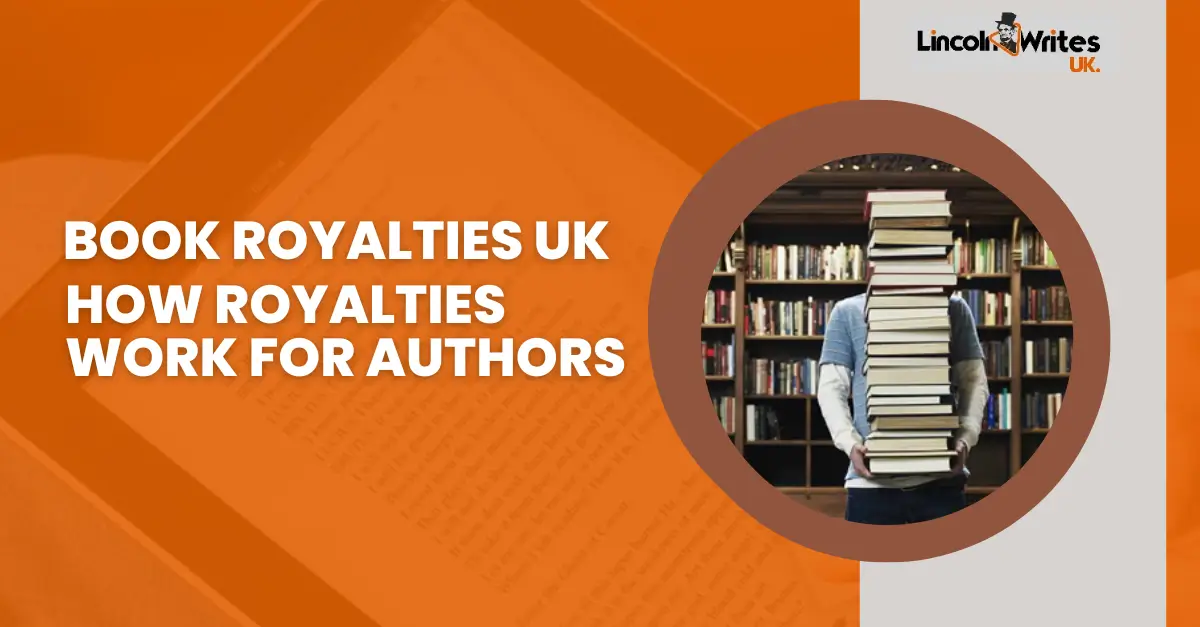So, you’ve written a book, or you’re thinking about it, and now you’re wondering what happens after you finally land that book deal or hit publish. Specifically: how do you get paid? If you’re looking to understand book royalties UK style, you’re in the right place.
Whether you’re going the traditional route, self-publishing, or working with ghostwriting services or eBook writing services, it helps to know what kind of money (and structure) you’re dealing with. Because while royalties might sound like passive income dreams, the reality comes with percentages, clauses, and plenty of fine print.
Let’s break it all down, from how much authors actually earn to what kind of contracts you should expect.
What Are Book Royalties?
Royalties are the percentage of money you earn for each copy of your book sold. This payment is either based on the book’s retail price or the amount the publisher receives (called “net receipts”). In the UK, the typical royalty rate depends on your publishing method and contract.
Royalties are how authors earn their living after publication, whether they’ve self-published or gone the traditional route with a publisher. Understanding these numbers is crucial, especially if you’re already investing in author platform building or planning your next book.
Traditional Publishing: Royalties and Advances
In traditional publishing, you’re often offered an advance, an upfront payment against future royalties. If your book sells enough copies to cover the advance, you begin receiving royalties.
Here’s how it usually works in the UK:
Hardcover books:
- 10% on the first 5,000 copies
- 12.5% on the next 5,000 copies
- 15% beyond 10,000 copies
Paperback books:
- 7.5% to 10% is standard
eBooks:
- 25% of net receipts is common
Some authors never “earn out” their advance, which means they won’t see any additional royalties. This is why understanding your contract, especially your ghostwriting contract, if you’re using one, is absolutely vital.
Self-Publishing: A Different Model
Self-publishing flips the script. There’s usually no advance, but you earn higher royalties per book.
With Amazon KDP:
- eBooks: 35% or 70% (depending on pricing and territory)
- Paperbacks: Typically around 60% minus printing costs
Other platforms like IngramSpark offer competitive rates but may charge setup fees or offer reduced royalties depending on distribution channels.
This is where services like eBook writing services become invaluable. They can help you get your manuscript polished, formatted using the best ebook formatting tools, and published correctly, so you’re actually set up to receive royalties efficiently.
Ghostwriting and Royalties: What You Need to Know
If you’re hiring a ghostwriter, your payment model works differently. In most cases, ghostwriters are paid a flat fee and do not receive royalties, especially if the ghostwriting contract clearly states a work-for-hire agreement.
That said, some ghostwriters (especially in long-term collaborations) may negotiate a share of royalties or credit depending on the project. This is more common in high-profile collaborations.
If you choose a ghostwriter UK, make sure your agreement spells out compensation, credit, and rights clearly.
Rights and Licensing: Where the Real Money Is
Beyond book sales, you can also earn through licensing:
- Translation rights
- Audiobook rights
- Film/TV options
- Merchandise
These can be negotiated separately, and yes, you’ll need a good agent or legal support to make sure you’re not signing them away too easily. This is often where experienced authors make the real money, and where new authors must tread carefully.
Understanding querying literary agents’ mistakes can help protect your rights from the start.
How Often Are Royalties Paid?
In the UK, most publishers pay royalties twice a year, typically in April and October. You’ll receive a royalty statement detailing how many copies were sold, at what price, and what your total earnings are.
If you’re self-publishing, platforms like Amazon pay monthly (about 60 days after the end of the month the sale occurred).
Pro tip: build a financial buffer. Royalties fluctuate and may take time to arrive. It’s not exactly “quit-your-job money” in the beginning.
Realistic Earnings: What Can You Expect?
Let’s be real, most UK authors aren’t rolling in it. According to a report by the UK Authors’ Licensing and Collecting Society, the median annual income of a professional author is less than £10,500.
That’s why many writers diversify their income through speaking, coaching, blogging, and offering related services.
Still, with the right strategy, niche, and marketing support (hello, book marketing services), you can absolutely earn more, especially over time.
Taxes and Record-Keeping
Yes, royalties are taxable. You’ll need to register with HMRC as self-employed and report your earnings annually. Keep track of your statements, advances, and business expenses like editorial services, cover design, and marketing.
If you’ve invested in line editing or copyediting, hired a designer familiar with book cover design psychology, or even worked with a professional to collaborate with a children’s book illustrator, those are all claimable as business expenses.
Making the Most of Your Royalties
Want to maximise your earnings?
- Understand your contract thoroughly.
- Market your book consistently using book marketing social media strategies
- Optimise your online presence with persuasive website copy tips
- Republish or repackage older books into new formats (eBooks, audiobooks, bundles)
- Create related products or services
- Build your platform with evergreen blog topics and newsletters
And of course, quality matters. If your manuscript isn’t solid, you’ll struggle to keep readers (or earn good reviews). That’s where manuscript editing preparation and expert feedback can make or break your book’s performance.
Final Note
Understanding book royalties in the UK is essential if you’re serious about earning from your writing. Whether you’re signing a traditional deal, self-publishing, or hiring help through ghostwriting services or eBook writing services, knowing the numbers and your rights gives you power.
And when you’re ready to build your publishing plan or need help navigating the tricky world of royalties, Lincoln Writes UK is here with the support, strategy, and expert services to help you succeed.


